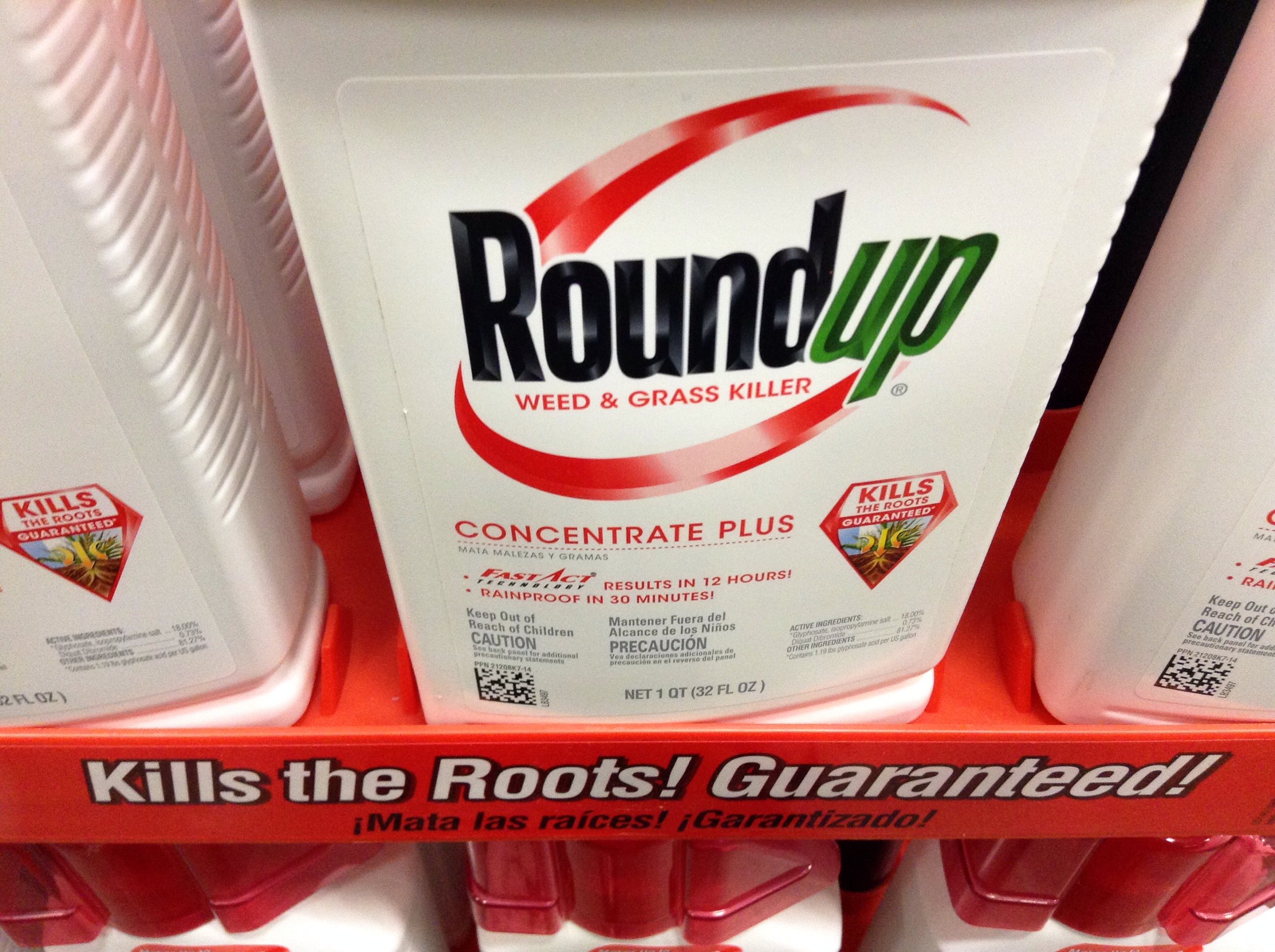
Monsanto's Roundup weed killer
Photo: Mike Mozart
A ban on herbicides containing glyphosate could reduce farm output by almost £1 billion, a new report has claimed.
The study, released by economics research house Oxford Economics and agricultural consultancy The Andersons Centre, in partnership with the Crop Protection Association, highlights what it calls “the potentially devastating impact of a ban on common herbicides to the British economy and the agricultural sector.”
According to the report, an EU ban on the chemical could lead to a reduction in farm output of £940 million; a £193m drop in tax revenues generated by agriculture and its supply chain; a 20 per cent reduction in wheat production; and, potentially, an increase in food prices.
Without glyphosate – the active ingredient in Monsanto’s widely used Roundup herbicide – “modern British farming as we know it could disappear”, the report claims.
Ian Mulheirn, director of consulting at Oxford Economics, commented: “Our report’s findings are very clear, a glyphosate ban will negatively impact UK GDP and agriculture, at a time of real uncertainty for British farmers.
“If glyphosate was not approved for use in the UK but remained available in the rest of the world, this would place domestic production at a considerable disadvantage. An EU-wide ban could even push up food prices for consumers.”
The EU routinely reviews active ingredients in pesticides and member states could ban glyphosate by the end of 2017 if proposals to extend the chemical’s license by 10 years fall through.
The report claims that the “overwhelming majority of scientific evidence” proves glyphosate is safe, with the European Chemicals Agency, which advises the EU on chemical legislation, recently concluding it is not a carcinogen.
However leading US toxicologist Christopher Portier accused the EU of downplaying the cancer risk in an open letter to European Commission president Jean-Claude Juncker.
The scientist, a former associate director of the National Institute of Environmental Health Sciences (NIEHS) in the US, claims that eight instances of “significant increases in tumour response” were not included in the EU agencies’ assessments, for which rodents were tested for cancer after being exposed to glyphosate.



